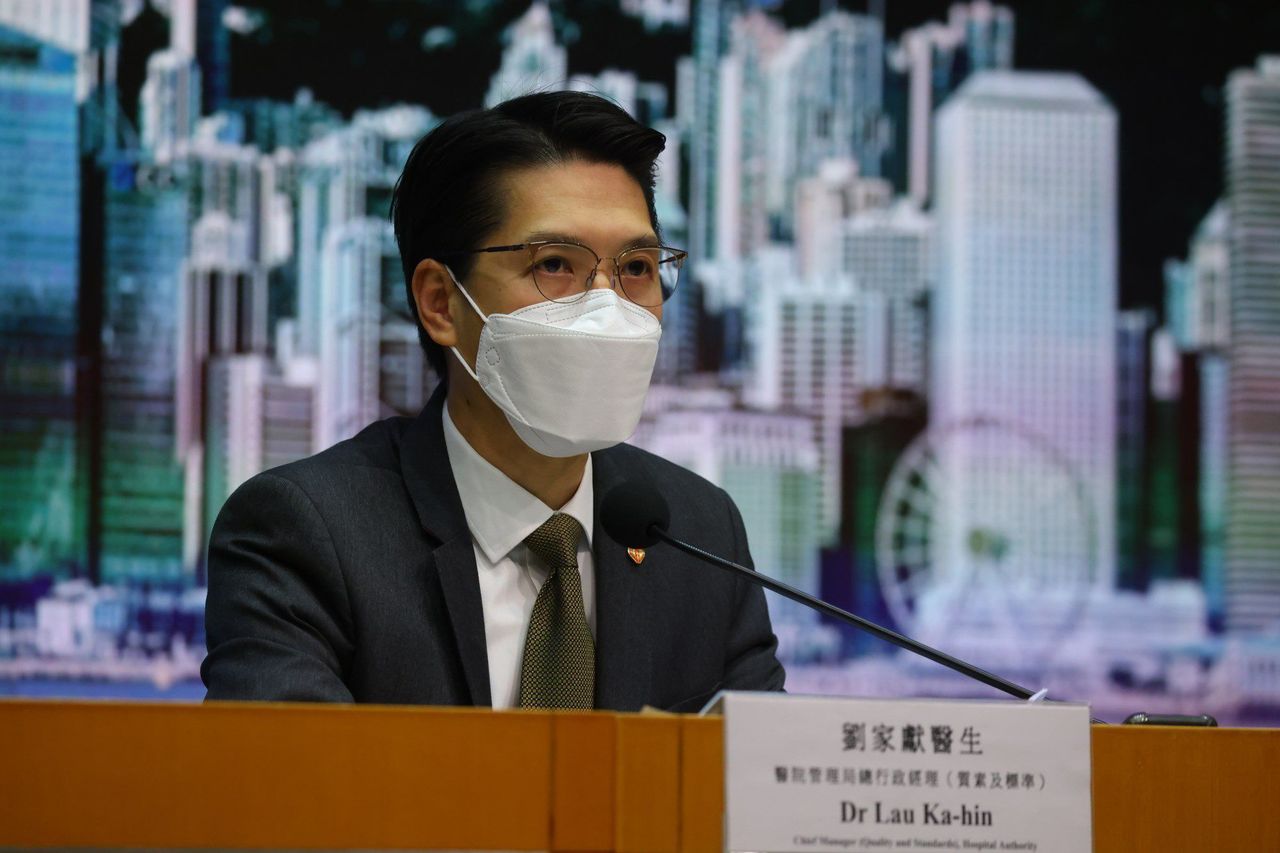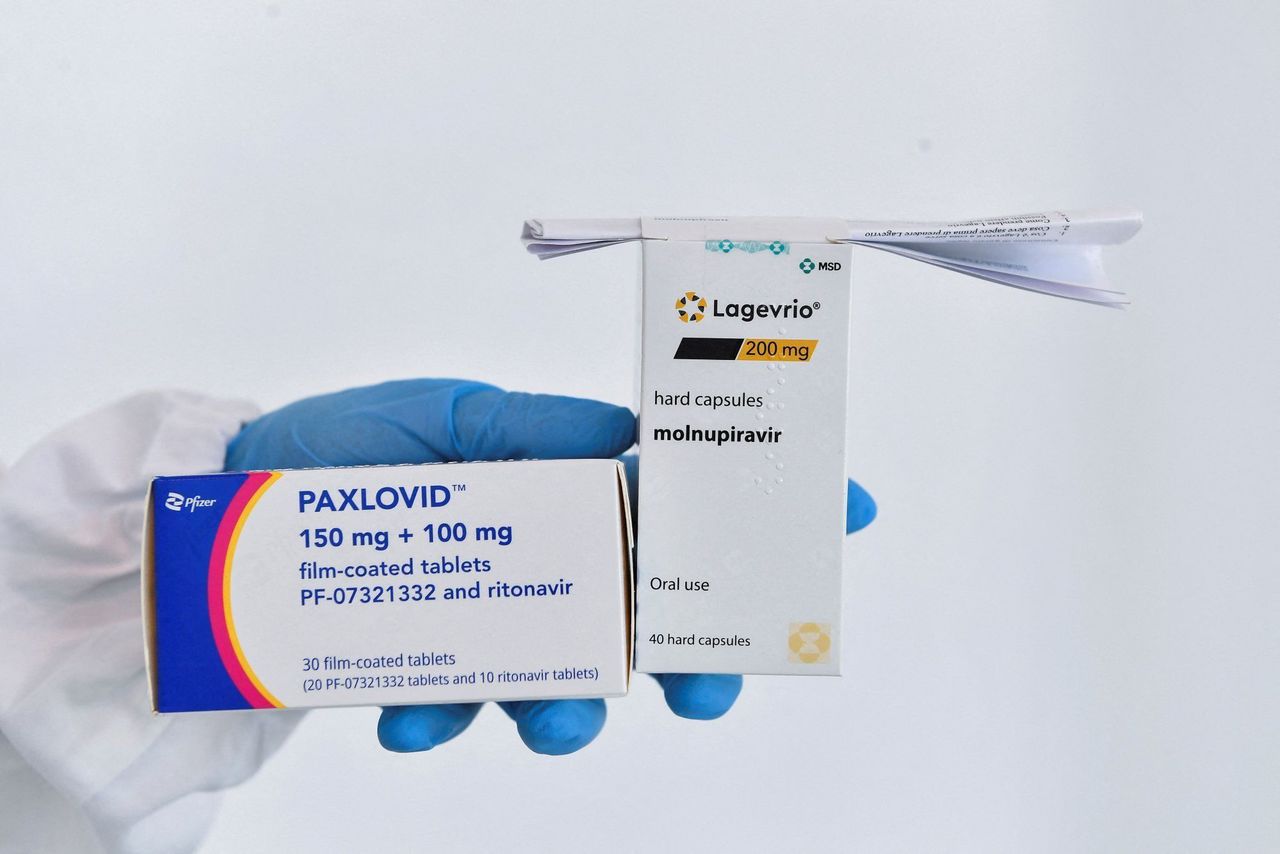Hospital Authority Chief Manager Dr Lau Ka-hin says public health facilities have administered Merck’s molnupiravir to 8,500 patients so far.
Nearly 10,000 Covid-19 patients have received oral antivirals since they were introduced in Hong Kong two weeks ago as a way to reduce deaths and cases with severe symptoms, according to health authorities.
Hospital Authority Chief Manager Dr Lau Ka-hin said public health facilities had administered Merck’s molnupiravir to 8,500 patients so far. About 1,000 others had received Pfizer’s Paxlovid since it was made locally available last Wednesday.
Addressing concerns that the current guidelines prioritise the use of the antivirals on elderly and vulnerable patients, Lau said public hospitals would also look at other factors in deciding recipients following recent concerns that others who might appear healthy but needed the drugs could be left out.
“There may be a guideline, but our medical staff would also look at the condition of the patient on the spot. Whether they have been vaccinated and how old they are just some of the criteria,” he said, adding that clinical guidelines also changed over time.
“You just have to tell your doctor your condition, medical history, medication record and so on. And they will make the best decision for everyone based on your current state and other overseas statistics provided by us,” he said.
 Hospital Authority Chief Manager, Dr Lau Ka-hin.
Hospital Authority Chief Manager, Dr Lau Ka-hin.
Lau noted a mechanism existed through which private hospitals could procure medication from their public counterparts, and he pledged to work with the for-profit facilities “in the near future” to discuss guidelines for administering the antivirals.
Hong Kong logged 16,597 cases on Saturday, the lowest in three weeks, taking the overall number to 1,033,541. A further 243 related deaths were recorded, pushing the total to 5,644.
Struggling to put a lid on its strongest fifth wave of infections yet, Hong Kong officials have put an emphasis on reducing deaths and severe cases following advice and from mainland Chinese officials and health experts.
Molnupiravir, developed by American drug maker Merck, had a 30 per cent effective rate of reducing risk of hospitalisation or death, while Paxlovid, manufactured by US pharmaceutical giant Pfizer, had a rate of 89 per cent.
Respiratory medicine expert Dr Leung Chi-chiu said that while the elderly should be prioritised in the allocation of the antivirals, doctors must also factor in the medical history of the patients and their current prescriptions.
 Covid-19 treatment pills Paxlovid and Molnupiravir.
Covid-19 treatment pills Paxlovid and Molnupiravir.
Leung said an ingredient in Paxlovid would lead to “drug-drug interaction”, especially for those on antibiotics or heart disease medication such as blood thinner or cholesterol drugs.
In some cases, patients might be able to stop taking medication to treat cholesterol or high blood pressure for about three to five days while they received molnupiravir, he noted.
“In any case, doctors will have to make the assessment based on the severity of the patient’s symptoms and should ask about their illness history and medication prescriptions,” Leung said.
Dr Ivan Hung Fan-ngai, co-convenor of an official panel on vaccine reactions, warned that molnupiravir would not be suitable for pregnant women or breastfeeding mothers.
When asked whether vaccination status should be a factor in administering the oral pills, Leung said it could be “tricky”.
“Vaccination definitely gives antibody protection, but depending on how many doses and how long ago the person took the shots, protection may wear off over time. It is still best to prescribe the pills based on the current situation of the patient,” he said.
The Hospital Authority’s Lau also provided updates on a recent incident in which two Covid-19 patients at Pok Oi Hospital in Yuen Long had their identities swapped.
He said the blunder was due to mismatched wristbands but their treatments were unaffected as medical staff tended to the patients in person. Further investigation was under way Lau added.
Meanwhile, health officials announced that a technical problem that arose on certain mobile phone models when Covid-19 patients tried to download their isolation order from the government online platform was fixed and residents could log in to the platform and download the document again.















